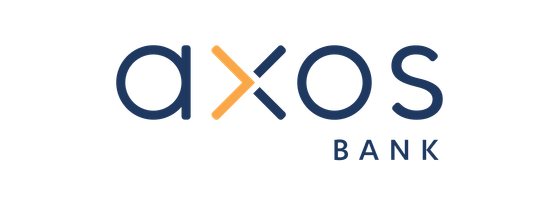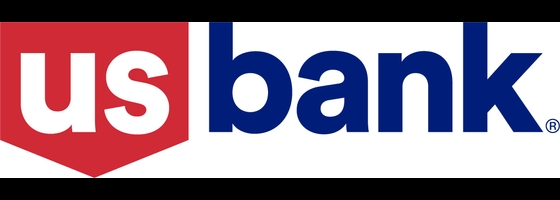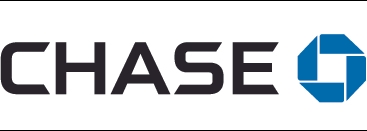- Extremely competitive interest rate.
- No monthly fees.
- No opening deposit requirement.
Best Business Savings Accounts in October 2024

Our evaluations and opinions are not influenced by our advertising relationships, but we may earn a commission from our partners’ links. This content is created by TIME Stamped, under TIME’s direction and produced in accordance with TIME’s editorial guidelines and overseen by TIME’s editorial staff. Learn more about it.
If you own a small business (or a large company), you’ll need somewhere to stash cash that you don’t spend daily. Here’s a look at some of the best business savings accounts available today, what they offer, and why you need a business account in the first place.
Why we recommend it: While there is only one business savings account from which to choose, Live Oak Bank offers a market-topping 3.90% annual percentage yield (APY) with no minimum deposit requirement, no monthly maintenance fees, and no minimum balance.
Live Oak Bank is an online institution offering high-yield business savings along with a suite of other financial products.
Because Live Oak Bank operates online, there are no local brick-and-mortar branches if you need in-person banking services. This also means that you’re unable to deposit cash into your account. If you regularly accept cash payments, you’ll need to find another way to deposit these funds and then transmit them to Live Oak Bank via a wire or an automated clearing house (ACH) transfer. If your account is dormant for more than 24 consecutive months, a monthly fee will be assessed.
Why we recommend it: The Axos Business Premium Savings offers a 4.01% APY with no daily account average minimums, monthly account fee or minimum deposit.
The other business savings account at Axos is the Axos Bank Business Savings account. account offers 0.20% APY on any balance held, with a minimum deposit requirement of $1,000. If you want to waive the monthly maintenance fee, you’ll need to maintain a minimum average daily balance of $2,500.
Axos also offers business checking accounts (Basic Business Checking and Business Interest Checking) that allow cash deposits via MoneyPass and AllPoint networks.
Why we recommend it: With the Basic Business Savings, there’s a low $100 minimum deposit requirement and no minimum daily balance requirement. If you want to avoid the $5 monthly fee, you only need to maintain a $500 minimum daily balance. You can also choose to enroll in the business savings sweep service, which will automatically take excess funds from your connected U.S. Bank business checking account and move it into savings in $500 increments.
U.S. Bank offers a savings account for business owners who want a low-deposit entry point to managing their company’s depository funds. You’ll have access to local branch locations for in-person teller services and cash deposits if you need them.
Compared with some of the other banks on this list, U.S. Bank’s Basic Business Savings account has a relatively low interest rate of just 0.01% or 0.05%. You also won’t get access to checks, and a monthly maintenance fee applies unless you meet minimum balance requirements.
Why we recommend it: This account allows you to deposit up to $5,000 in cash per month at no additional cost. There is a monthly service fee of $10, though this can be waived by maintaining a $1,000 average daily balance or linking to an eligible Chase Business Complete Banking account.
If you run a small business looking to make cash deposits at local branch locations without fees, the Chase Business Total Savings account is a great place to start your search. JP Morgan Chase, the largest bank in the United States, has more than 4,700 branch locations.
Interest rates are relatively low compared with many others on this list. However, there are relationship rates for customers with other eligible Chase accounts. You’ll also find that certain account information is limited online, but you are able to visit your local brick-and-mortar location with questions or to open an account.
Why we recommend it: Growing businesses often benefit from developing relationships with a local banker. That is made significantly easier when a bank has 4,7000 physical locations, as Chase does.
Growing businesses can take even more advantage of JP Morgan Chase’s huge network of branches, in addition to its robust online and app presence.
Chase Business Premier Savings is an expanded version of its Total Savings Account. You can deposit up to $10,000 in cash monthly, for example, and make up to 30 fee-free deposits overall. There’s a monthly service fee of $20, though this is waived if you maintain an average balance of $25,000 or more, or by linking to an eligible Chase business checking account.
Why we recommend it: The Wells Fargo Business Market Rate Savings account has an opening deposit requirement of just $25, making it accessible to businesses of any size or revenue level. A $5 monthly fee applies, but this can be waived by meeting an average daily balance requirement of $300 or by linking to an eligible Wells Fargo business checking account and receiving eligible transfers of $25 per month or more.
With its low deposit requirement and accessible requirements for waiving its monthly fee, the Wells Fargo Business Market Rate Savings account is particularly hospitable to small businesses, especially those just starting out. In fact, its fees for extra transactions and more than $5,000 of monthly deposits make it not so well suited to larger businesses.
Interest rates are relatively low on the Business Market Savings account, capping out at just 0.01% regardless of the balance held. However, the first 20 deposits each month (up to $5,000 cash) are complimentary; you may incur charges for deposits after that. You can also opt to manage your account entirely online or visit one of the 4,600 Wells Fargo branch locations if you need to make cash deposits or get help with your account.
Why we recommend it: Interest rates can reach as high as 2.50% APY, though this depends not only on the balance held but also where you’re located.
Larger—but not huge—businesses wanting to bank with Wells Fargo should consider the Business Platinum Savings account, which allows up to $10,000 in fee-free cash deposits per month. This account also has a monthly fee of $15, which can be waived if you meet a $10,000 minimum daily balance requirement or link to an eligible Wells Fargo business checking account.
This account may be limited to an aggregate of $5 million. You can make up to 20 deposits each month (including up to $5,000 cash) without a fee, but you may incur charges for any deposits after that.
Why we recommend it: The Capital One Business Advantage Savings account permits you to write checks as needed from your business savings account. Not all business savings accounts offer paper-check access, so this can be helpful if you need or prefer to use checks for some transactions.
With the Capital One Business Advantage Savings account, You’ll enjoy a high promotional APY, currently 4.01%, on your balance for up to six months. This account has a monthly maintenance fee of just $3, which can be waived as long as you maintain a balance of over $300 each month. You’ll be able to make cash deposits up to $10,000 per month without incurring fees and have access to Capital One’s wide network of ATMs and brick-and-mortar branch locations.
After the six-month promotional APY ends, your interest rate will drop to a pretty standard 0.10% APY. Even though the federal rule known as “Regulation D” no longer limits savings accounts to a certain number of monthly transactions, Capital One still imposes the rule. If you repeatedly exceed six transactions in a month, your account may either be closed or converted to a checking account.
| Title | APY* | Min. deposit | Min. balance to earn APY | Monthly fee |
|---|---|---|---|---|
Live Oak Business Savings | 3.90% | $1,000 | $0.01 | $0 |
Axos Bank Business Premium | 4.01% | $0 | $0 | $0 |
Axos Bank Business Savings | 0.20% | $1,000 | $0.01 | $5, but can be waived |
U.S. Bank Basic Business Savings | 0.01% or 0.05% | $100 | $0.01 | $5, but can be waived |
Chase Business Total Savings | 0.01% | N/A | $0.01 | $10, but can be waived |
Chase Business Premier | 0.02% | N/A | $0.01 | $20, but can be waived |
Wells Fargo Business Market Rate Savings | 0.01% | $25 | $0.01 | $5, but can be waived |
Wells Fargo Business Platinum Savings | 0.25% to 2.50% | $25 | $0.01 | $15, but can be waived |
Capital One Business Savings | Up to 4.01% promotional | N/A | $0.01 | $3, but can be waived |
To select the best business savings accounts, we considered a number of different financial institutions and products, comparing them across a variety of criteria. We looked at factors such as product availability, ease of account opening and management, minimum deposit requirements, fees, and interest rates. We also considered whether fees could be waived and how businesses can access their funds and deposit their earnings.
Looking for your next business savings account? Here are some things to ask yourself before you search.
If you operate a business that earns a lot of cash, you’ll need a financial institution that allows you to deposit that currency. Online banks may not be the answer, as you won’t have access to a local teller or sometimes even an ATM that accepts cash deposits. Some banks also charge a fee for cash deposits each month, especially over a certain threshold, so keep this in mind.
Your typical savings account balance is important for helping you choose the right account. Some banks have a minimum deposit and/or a minimum monthly balance requirement. If you don’t meet these requirements, your account may be closed, downgraded, or charged monthly fees.
Some financial institutions offer higher interest rates when you hold a larger balance, so this can also be a consideration when figuring out which account is best for you. And a few actually offer lower interest above certain amounts.
Do you want paper checks for your savings account? What about access to local ATMs or in-person teller services? Maybe you want to be able to transfer funds seamlessly between your business savings and business checking accounts? Do you need to make daily cash deposits? Are you interested in building an in-person relationship with a local banking executive to help grow your business? All of these are important to identify and note when searching for your next account.
While free business savings accounts do exist, many charge monthly maintenance fees unless you meet certain minimum deposit or balance requirements. If you cannot maintain them, you’ll waste money each month on fees that you might be able to avoid.
The higher your business savings account APY, the more your money will earn. Be sure to shop around and maximize these earnings by finding the account with the highest interest rate that also matches your planned spending habits, projected balance, and typical deposits.
If a business savings account isn’t right for you, here are some alternatives to consider.
A money market account operates similarly to a savings account, providing many of the same features. Depending on the financial institution, it may have a higher interest rate, lower fees, or different monthly transaction limits than a savings account from the same bank.
With a certificate of deposit (CD) you can lock away your savings for a defined period of time in exchange for a higher return. While CDs don’t give you immediate access to your money, as a savings account does, the APY is typically much higher. If you don’t anticipate needing to touch those funds for a while, this could be your best bet to maximize your return.
A business savings account is great for funds that you don’t need to touch regularly, especially if you can maintain a high enough balance to waive any monthly fees. However, if you need to spend that money throughout the month, a business checking account would be the better option. While it doesn’t usually have an APY as high as a savings account, it allows you to access your funds with a debit card, paper checks (often), and more, and it won’t have monthly transaction limits.
A business savings account is an important part of any business’ financial strategy. Finding the best one for you means looking at the ways you receive and spend funds, the amount you carry in savings throughout the month, and how you can best maximize your returns while limiting (or even avoiding) fees.
Consider these points to learn more about why a business savings account could be useful to your company.
A business savings account is a depository account intended to hold business funds that you don’t need to spend right away. These may include funds earmarked for future expenses, such as taxes, or those that will be reinvested in the business.
A business savings account works like any other savings account, giving you access to a depository account in which you can place your funds, withdrawing them as needed. Most business savings accounts earn interest on the balance held, helping your money grow over time. You can withdraw funds to use as needed—whether making a cash withdrawal, initiating an ACH or a wire transfer, or (if permitted by your account) writing a check.
A business savings account allows you to separate your everyday business funds from those that are earmarked for other purposes. This way you can save for larger transactions—such as quarterly taxes or payroll—without inadvertently touching those funds. You can also use a business savings account to keep money “out of sight, out of mind” on a daily basis, potentially helping you meet certain savings goals.
It’s generally recommended to have a personal emergency fund equal to three to six months’ worth of expenses. Ideally, you should aim for the same with a business. This can give you a buffer if your business experiences a downturn or incurs unexpected expenses, allowing your company to stay afloat, handle obligations, and manage payroll for employees until you get back on your feet.
Many institutions will let you open a business savings account online, though some will require you to visit a branch location. Expect to provide the bank with information such as your name, the name of your business, your employer identification number (EIN), and contact information, such as your business address and phone number. You may also need to provide articles of incorporation or other operational documentation and, in some cases, financial records showing incoming transactions and monthly expenses.
A business checking account is meant as a holding place for funds that are being spent on everyday expenses. It facilitates transactions. A business savings account is intended for funds that will sit a bit longer, such as long- and short-term savings or cash earmarked for upcoming expenses. It also allows you to earn some interest on your savings.
A business savings account and business money market account are very similar in that both are depository in nature and typically offer a higher APY than business checking accounts. However, money market accounts may offer better access to funds in the form of an ATM card, checks, or both, while some business savings accounts only allow for ACH and wire transfers between accounts.
An LLC can open a business savings account through many financial institutions. Expect the bank to request a copy of your LLC’s articles of incorporation and other documentation as evidence of the LLC and its eligible members.
While you can technically use a regular (personal) savings account for your business, it isn’t recommended. For starters, it calls into question whether the funds it contains are personal or business in nature. And if the account actually mixes personal and business funds, you can make damaging accounting errors at the end of the year.
The information presented here is created by TIME Stamped and overseen by TIME editorial staff. To learn more, see our About Us page.









